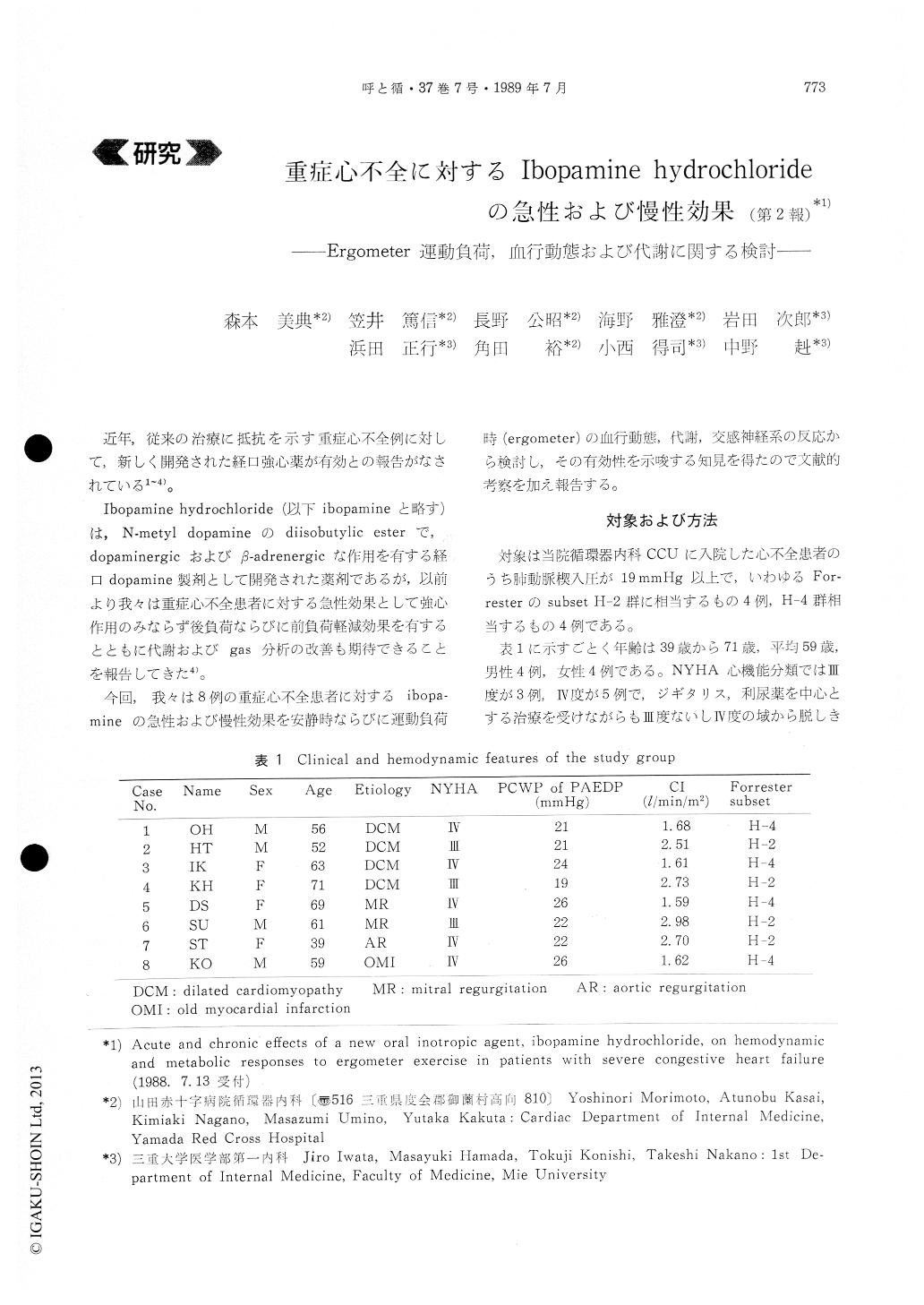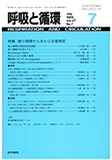Japanese
English
- 有料閲覧
- Abstract 文献概要
- 1ページ目 Look Inside
近年,従来の治療に抵抗を示す重症心不全例に対して,新しく開発された経口強心薬が有効との報告がなされている1〜4)。
Ibopamine hydrochloride (以下ibopamineと略す)は,N-metyl dopamineのdiisobutylic esterで,dopaminergicおよびβ-adrenergicな作用を有する経口dopamine製剤として開発された薬剤であるが,以前より我々は重症心不全患者に対する急性効果として強心作用のみならず後負荷ならびに前負荷軽誠効果を有するとともに代謝およびgas分析の改善も期待できることを報告してきた4)。
The hemodynamic and metabolic effects of ibopa-mine, an orally active 3,4-diisobutylic ester of N-methyl-dopamine, at rest and during exercise, were evaluated in 8 patients with severe congestive heart failure, initially at 2 hrs after oral 100 mg and after 4 weeks of maintenance therapy (100 mg, 3 times a day).
At rest, a single dose of ibopamine increased CI, SVI and SWI, and reduced PCWP, PAm, RA and PVR. These beneficial hemodynamic effects were maintained during supine bicycle exercise : CI and SVI increased markedly (p<0.05) and PCWP, PAm, RA and SVR increased at a lower extent (p<0. 05) after ibopamine than on control conditions.
After chronic therapy with the drug, LVDd and CTR decreased (p<0.05) and exercise tolerance time increased (p<0.01). HR, BPm, double product, norepinephrine, epinephrine, renin activity, aldo-sterone and lactate/pyruvate did not change signifi-cantly after administration of ibopamine. Clinical responses after 4 weeks of maintenance therapy were good in 4 cases and fair in 1 case. No adverse effects were observed.
Therefore, ibopamine seems to have not only a positive inotropic action, but also a potent vaso-dilating action, leading to both afterload and preload reduction and so to be useful for the treatment of severe congestive heart failure at rest and during exercise after acute and chronic therapy with the drug.

Copyright © 1989, Igaku-Shoin Ltd. All rights reserved.


